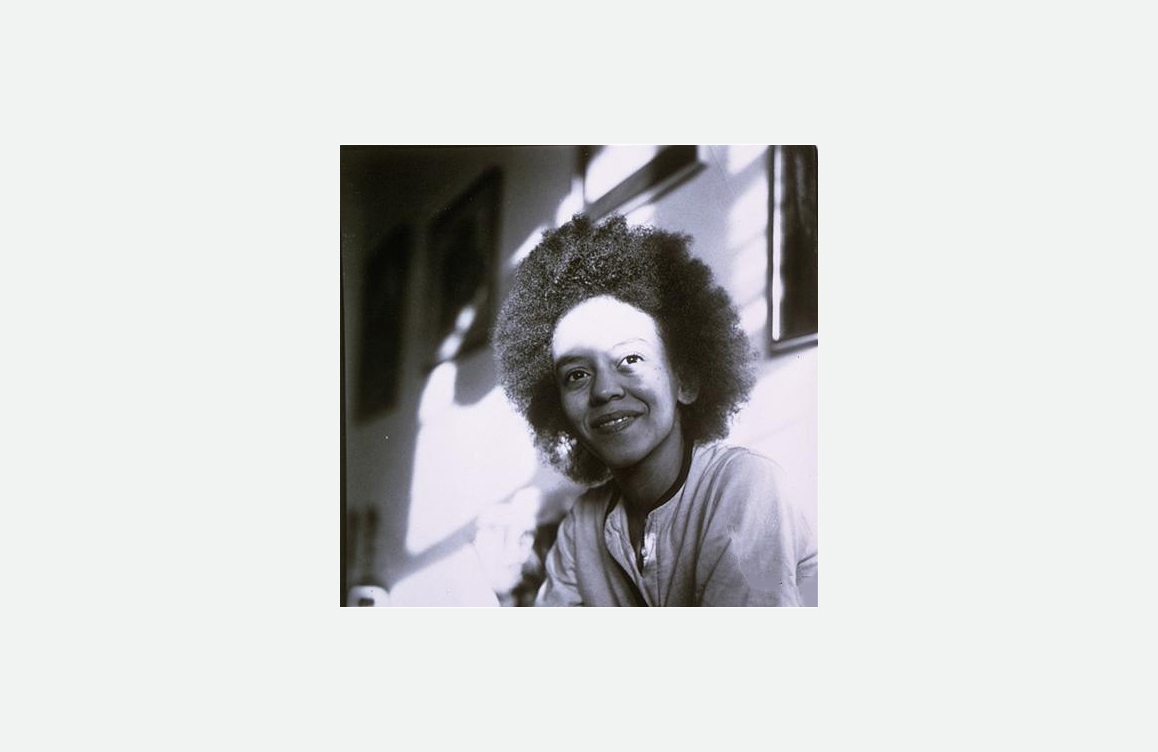Nikki Giovanni: The Living Legend
“My dream was not to publish or to even be a writer: my dream was to discover something no one else had thought of. I guess that’s why I’m a poet. We put things together in ways no one else does.”
—Nikki Giovanni
A prolific writer, commentator, activist, and educator, Nikki Giovanni is a cornerstone in the Black Arts Movement. Giovanni is the author of over 20 collections of poetry—but she is much more than a poet. She’s published notable nonfiction, children’s literature, and award-winning recordings of her work. Her activism and influence in American culture are near impossible to escape.
Giovanni was born in Knoxville, Tennessee but spent most of her childhood in Cincinnati, Ohio. As a child, she considered herself lucky to spend many days home from school with sniffles, colds, and allergies, because that meant “[she] could read the books that [she] wanted to read.”The days spent at home allowed her access to her mother’s well-curated library. Giovanni spent the time reading Richard Wright, Langston Hughes, Paul Laurence Dunbar, and more.
In addition to her time spent reading, she listened to a wide variety of music: including gospel spirituals, opera, R&B, and jazz, “I feel so sorry for the kids who only hear one kind of music. Where do your dreams come from?” said Giovanni.
As a well-read and cultured young woman, her early interest in the intersection of literature and race was only natural. She began studying at Fisk University, a prestigious HBCU, as an “early entrant” (before graduating high school). At the time, a renaissance of literature and culture was blossoming on campus. Here, she was able to take on projects and collaborations exploring Black identity and the rights of Black people.
At Fisk, she edited the student literary journal, Élan, and reinstated the campus chapter of the Student Non-Violent Coordinating Committee. During this time, she also published an essay in Negro Digest on gender questions in the Black Arts Movement.
Her time at Fisk further solidified her identity as a writer and activist. She developed her now-renowned sophisticated use of vernacular speech and her iconic, powerful African-American perspective. She would go on to write poetry collections, anthologies, and non-fiction works that illuminated important social issues, complex human relationships, and the fight for gender equality—especially within the Black Arts Movement.
Her earliest volumes, Black Feeling, Black Talk (1968), Black Judgement (1968), and Re: Creation (1970) dealt with her growing political and spiritual awareness. The collections dealt heavily with the assassinations of Black leaders such as Martin Luther King, Jr., Malcolm X, and Medgar Evers. With unflinching discussions of oppression, anger, frustration, the need for Black awareness, unity, and solidarity, these books established Giovanni as a leading voice in African American Literature.
While these works went on to become exceptionally successful, Giovanni had a hard time finding a publisher at first. “No one was much interested in a Black girl writing what was called “militant” poetry. I thought of it as good poetry but we all have our own ideas. Since no one wanted to publish me I formed a company and published myself.” she wrote. In 1970, she co-founded a publishing cooperative called NikTom, Ltd., which gave a platform to other African American women writers.
Giovanni went on to build a sensational career. She published conversations with prominent figures like Margaret Walker and James Baldwin; she made several recordings of her poetry set against gospel and jazz music; and she broke ground in non-fiction and children’s literature.
In 1971, she was nominated for a National Book Award for Gemini: An Extended Autobiographical Statement on My First Twenty-five Years of Being a Black Poet (1971). Giovanni was diagnosed with lung cancer in the 1990s. Her collection Blues: For All the Changes: New Poems (1999) intimately discusses nature and her battle with cancer. In 2005, her album The Nikki Giovanni Poetry Collection was nominated for the Grammy Award for Best Spoken Word Album.
Her children’s literature evokes childhood images and feelings, with a focus on Black history and concerns specific to Black youth. Her most notable works in this genre are Knoxville, Tennessee (1994), The Sun Is So Quiet (1996), Lincoln and Douglass: An American Friendship (2008), and Rosa (2005).
Her notable nonfiction includes Racism 101 (1994), which discusses the civil rights movement and its aftermath, citing Black intellectuals such as W.E.B. DuBois, Henry Louis Gates, Jr., Toni Morrison, Supreme Court Justice Clarence Thomas, and Spike Lee.
During this time, she earned countless awards—including seven NAACP Image Awards; The Langston Hughes Award for Distinguished Contributions to Arts and Letters; The Rosa Parks Women of Courage Award; Honors from the National Council of Negro Women; over 20 honorary degrees from colleges and universities around the U.S.; the keys to more than two dozen American cities; the Maya Angelou Lifetime Achievement Award; Woman of the Year in Ebony Magazine, Mademoiselle magazine, and Ladies’ Home Journal—and she even has a species of bat named after her: Micronycteris giovanniae.
Giovanni’s acclaimed career and salient influence in the world of literature and social justice are far from over. She has taught at Rutgers University and Ohio State University, and she is now a Distinguished Professor at Virginia Tech. Her latest publication is Make Me Rain: Poems and Prose (2020).




